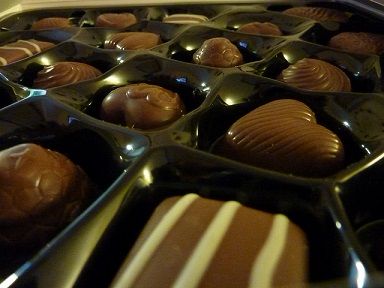The old Cadbury’s advertising slogan had it about right, it seems. A new survey carried out by Megafon on behalf of TV2 has come up with a results that the chocolate and advertising industry, you would have thought, have known for some time: women are fond of confectionery.
However, the surprise is that women aged 18-49 with a high level of further education living in Copenhagen Municipality are the group of Danes who eat the largest amount.
Mars attack
Amongst women in general, 30 percent ate confectionery at least four days a week. In comparison, only 22 percent of men ate confectionery that often. When it comes to the Capital Region, 16 percent of Danes ate confectionery every day or almost every day, making it the region in which citizens most often ate it.
Amongst academics, 30 percent of all Danes with a university degree ate confectionery on at least four days per week, making them the educational group who ate sweets most often.
Play football and check prostate cancer
Every year, around 4,500 men in Denmark are diagnosed with prostate cancer and about 3 percent die as a result of it. New research has revealed that playing football is an excellent form of medicine, reports DR Nyheder. The researchers tracked 214 men with prostate cancer for one year. “Playing football gives men extra energy on a day-to-day basis and we’ve seen that those who play football also score higher when it comes to mental health,” said physiotherapist Eik Bjerre, the head of research. “It is important for men with prostate cancer to be physically active.”
More sustainable jeans on the way?
The indigo dye used in the world’s most ubiquitous article of clothing, blue jeans, is harmful to the environment because of the chemicals involved, large amounts of acid and great amounts of water used. Whilst working at the University of Berkeley, Ditte Hededam Welner, an enzyme researcher at the Technical University of Denmark, was part of a team that developed a way of making indigo using genetically-modified bacteria. There is still some way to go, though. Today, around 50,000 tonnes of indigo dye is manufactured through chemical synthesis. The new method has not yet been tested on a large scale, and at present it can only yield around 4-7 grams per litre of ‘bacterial soup’. In order to be commercially viable, at least 100 grams per litre is needed.
Denmark earmarks funds to combat maritime rubbish
The Danish government has set aside 20 million kroner in the 2019 budget to support a new fund under the auspices of the World Bank to tackle the problem of plastic waste in the maritime environment, reports Ingeniøren. At a conference on Tuesday the development minister, Ulla Tørnæs, launched the Ocean Plastic Forum. The current 18 partners consisting of Danish companies and organisations will pool their knowledge and technology to find solutions to protect the world’s oceans against plastic waste. A number of other countries have also pledged to join the fight against plastic waste. The focus is especially on developing countries where increasing prosperity has often also led to increasing amounts of plastic being produced.















